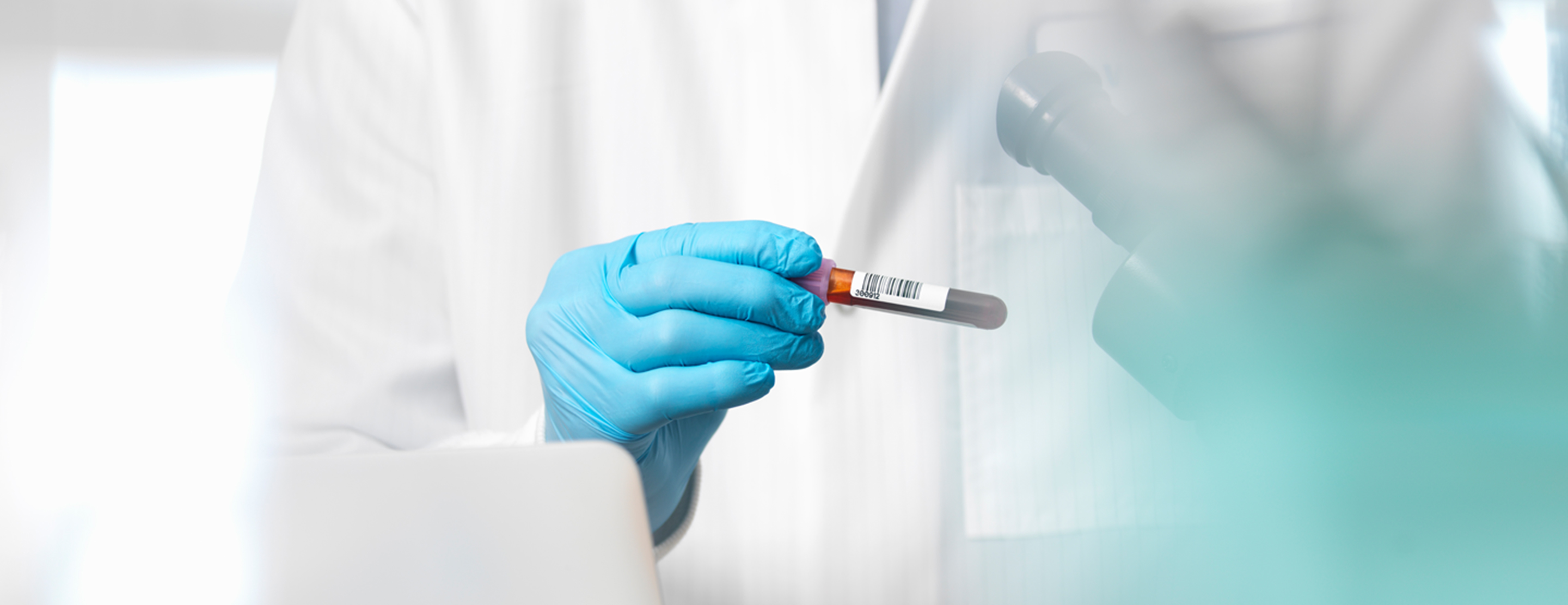
Indium-labelled WBC scan
Definition
A radioactive scan detects abscesses or infections in the body by using a radioactive material. An
Alternative Names
Radioactive abscess scan; Abscess scan; Indium scan; Indium-labeled white blood cell scan; WBC scan
How the Test is Performed
Blood is drawn from a vein, most often on the inside of the elbow or the back of the hand.
- The site is cleaned with germ-killing medicine (antiseptic).
- The health care provider wraps an elastic band around the upper arm to apply pressure to the area and make the vein swell with blood.
- Next, the provider gently inserts a needle into the vein. The blood collects into an airtight vial or tube attached to the needle.
- The elastic band is removed from your arm.
- The puncture site is covered to stop any bleeding.
The blood sample is then sent to a lab. There the white blood cells are tagged with a radioactive substance (
You will need to return to the office 6 to 24 hours later. At that time, you will have a
How to Prepare for the Test
Most of the time you do not need special preparation. You will need to sign a consent form.
For the test, you will need to wear a hospital gown or loose clothing. You will need to take off all jewelry.
Tell your provider if you are pregnant. This procedure is NOT recommended if you are pregnant or trying to become pregnant. Women of childbearing age (before menopause) should use some form of birth control during the course of this procedure.
Tell your provider if you have or had any of the following medical conditions, procedures, or treatments, as they can interfere with test results:
Gallium (Ga) scan within the past monthHemodialysis Hyperglycemia - Long-term antibiotic therapy
- Steroid therapy
- Total parenteral nutrition (through an IV)
How the Test will Feel
Some people feel a little pain when the needle is inserted to draw blood. Others feel only a prick or sting. Afterward, there may be some throbbing.
The nuclear medicine scan is painless. It may be a little uncomfortable to lie flat and still on the scanning table. This most often takes about an hour.
Why the Test is Performed
The test is rarely used today. In some cases, it may be helpful when doctors cannot localize an infection. The most common reason it is used is to look for a bone infection called osteomyelitis.
It is also used to look for an abscess that may form after surgery or on its own. Symptoms of an abscess depend on where it is found, but may include:
- Fever that has lasted a few weeks without an explanation
- Not feeling well (malaise)
- Pain
Other imaging tests such as an
Normal Results
Normal findings would show no abnormal gathering of white blood cells.
What Abnormal Results Mean
A gathering of white blood cells outside of the normal areas is a sign of either an abscess or other type of inflammatory process.
Abnormal results may include:
- Bone infection
Abdominal abscess Anorectal abscess Epidural abscess Peritonsillar abscess Pyogenic liver abscess Skin abscess Tooth abscess
Risks
The risks of this test include:
- Some bruising may occur at the site of injection.
- There is always a slight chance of infection when the skin is broken.
- There is low-level radiation exposure.
The test is controlled so that you get only the smallest amount of radiation exposure needed to produce the image. Most experts feel that the risk is very low compared with the benefits.
Pregnant women and children are more sensitive to the risks of radiation.
References
Berbari EF, Steckelberg JM, Osmon DR. Osteomyelitis. In: Bennett JE, Dolin R, Blaser MJ, eds. Mandell, Douglas, and Bennett's Principles and Practice of Infectious Diseases, Updated Edition. 8th ed. Philadelphia, PA: Elsevier Saunders; 2015:chap 106.
Hutton BF, Segerman D, Miles KA. Radionuclide and hybrid imaging. In: Adam A, Dixon AK, Gillard JH, Schaefer-Prokop CM, eds. Grainger & Allison's Diagnostic Radiology. 6th ed. Philadelphia, PA: Elsevier Churchill Livingstone; 2015:chap 6.
Matteson EL, Osmon DR. Infections of bursae, joints, and bones. In: Goldman L, Schafer AI, eds. Goldman-Cecil Medicine. 25th ed. Philadelphia, PA: Elsevier Saunders; 2016:chap 272.
Review Date: 06/25/2018
The information provided herein should not be used during any medical emergency or for the diagnosis or treatment of any medical condition. A licensed physician should be consulted for diagnosis and treatment of any and all medical conditions. Call 911 for all medical emergencies. Links to other sites are provided for information only -- they do not constitute endorsements of those other sites. Copyright ©2019 A.D.A.M., Inc., as modified by University of California San Francisco. Any duplication or distribution of the information contained herein is strictly prohibited.
Information developed by A.D.A.M., Inc. regarding tests and test results may not directly correspond with information provided by UCSF Health. Please discuss with your doctor any questions or concerns you may have.





